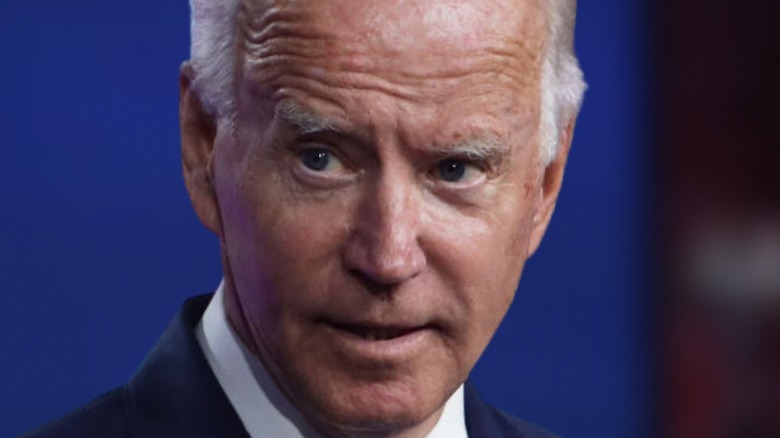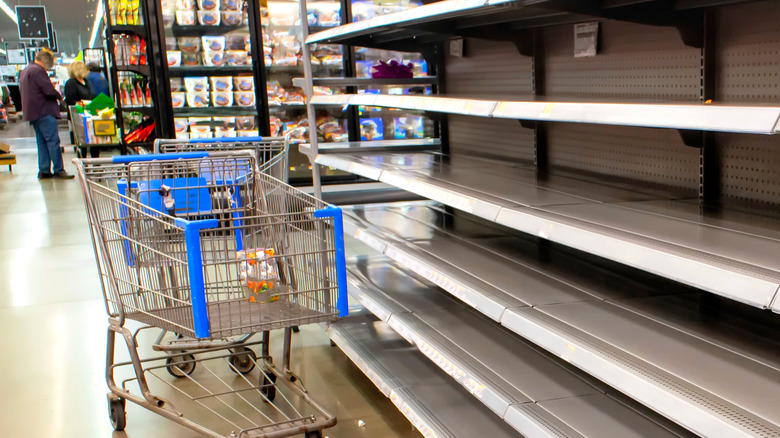Why President Biden Just Warned About Impending Food Shortages
Over the past several years, consumers have seen empty store shelves, rising food costs, and bank accounts dwindle. While much has been covered about supply chain issues, impact from the global pandemic, and inflation affecting the U.S. economy, President Biden alerted the country that impending food shortages will be a continuing part of the conversation. While the world watches the battles between Ukraine and Russia, the impact is going to be felt on the family dinner table.
Although world conflicts, political pivots, and supremacy motives are never easy to explain, many of the world's leaders have sought to sanction Russia for its choice to invade Ukraine. As the BBC explains, sanctions are "penalties imposed by one country on another, to stop it acting aggressively, or breaking international law." Similar to a parent who wants to "assist" a child to make a better choice, the restrictions hope to help curb bad behavior without escalating to the point of war. Unfortunately, sanctions do not just impact the bad actor. The ripple effect from limiting exports, targeting individuals, and even companies choosing to close their doors is felt across all industries and countries. For Americans, the empty shelves might have a feeling of 2020 food shortage deja vu coupled with higher costs and it serves as a reminder. As Jean-Paul Sartre said, "When the rich wage war, it's the poor who die."
When could Americans see more food shortages?
As the devastation multiples in Ukraine, the impact is going to be felt far beyond the country's borders. According to The Hill, during a recent press conference in Brussels, President Joe Biden commented that food shortages are "going to be real." Although consumers might not think that Russia impacts the food on the local grocery store shelf, the interconnected world economy cannot slice off one major player without impacting everyone else in the chain. From food insecurity across nations to rising costs in the United States, there is an impending global crisis.
Recently, The New York Times reported that "wheat prices have increased by 21 percent, barley by 33 percent and some fertilizers by 40 percent." In addition, U.S. grocery prices continue to rise over prior years. Since Russia has a large influence on the fertilizer industry and exports large amounts of wheat, the imposed sanctions reduce those commodities in the world economy. In turn, the lack of supply causes costs to rise, as well as can create a lack of product. Both scenarios are detrimental to companies and consumers. Although world leaders are seeking solutions to alleviate the detrimental situation, there is no quick fix, just like it will take decades for Ukraine to rebuild from the rubble.

